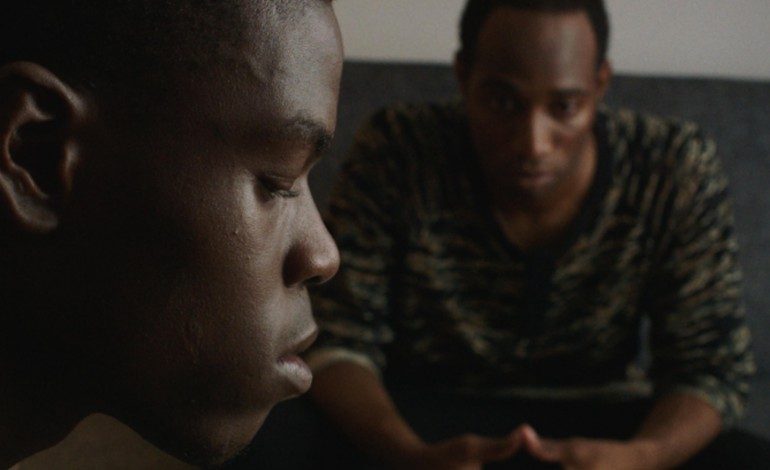

When we were planning for SXSW this year, Naz & Maalik grabbed my eye for the simple social relevance built into the plot. The main characters are a pair of black Muslim teens living in New York City, and the movie (according to the logline), “examines the mysterious forces that animate teenage minds, ten years into the War on Terror.” Throw in the fact that the main characters are gay, and you’ve got about every hot button issue accounted for. That’s a potent setup even if race, sexual orientation, and religion never even make more than background appearances in the plot of the movie itself.
This is the first feature film from writer/director Jay Dockendorf, and stylistically he seems to be angling for something completely devoid of artifice. The camera is handheld without calling attention to itself in the mode of, say, a Paul Greengrass film, and the actors are mostly newcomers, with nearly the entire film resting on the shoulders of its title characters.
On one hand, the rawness of the cinematography and acting lends a sort of authenticity to the idea that Naz and Maalik are two teenagers just trying to figure things out and not really sure of where they stand. There’s something to be said for reflecting a teen’s world that seems to shift uncontrollably several times over the course of a single day. On the other hand, the entire movie felt a bit amateurish to me. There’s a subplot with the FBI that’s supposed to address profiling and underhanded law enforcement tactics, but it’s unintentionally hilarious. The script is too meandering for my tastes, even taking into account a desire to “examine the mysterious forces that animate teenage minds,” and the actors struggle from the opening scene to find the line between a raw performance and a bad one.
I am curious to talk to some more people who got to a screening of Naz & Maalik to see what they took away from it (I haven’t had a chance yet on this particular film), but for now I have to chalk this one up as a bit of a disappointment. Especially when there’s so much space that the movie could explore with gay black American Muslim protagonists, I wish the movie had been a bit more focused on a particular story rather than relating a day that, while eventful, didn’t showcase much change in the characters or their world.

